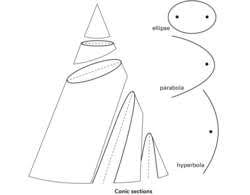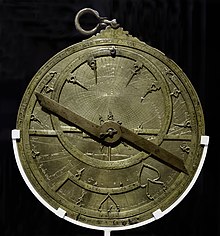Hypatia: Historically the 1st
- Tina
- Nov 3, 2023
- 2 min read
Updated: Dec 2, 2023
Hello everyone! I'm Tina and this is Women Weekly, where I post about one wonderful woman in the STEM field every Friday. This week it's going to be about the 1st female mathematician, whose life and work we know about – Hypatia.
Hypatia was born and lived in Alexandria, Egypt. The year of her birth is still debated by historians, ranging from 350 AD to 370 AD. Her father was Theon, a famous mathematician and philosopher, but we know nothing about Hypatia's mother. Allegedly, Theon strived to raise the perfect human, (even the name Hypatia means 'supreme'), so he made sure that both her brain and body developed to be healthy and functional. He tutored her in mathematics and sciences, instructed her on different religions, and showed her how to teach and influence people.
Hypatia became a teacher of Neoplatonism, following the teachings of Plotinus instead of Iamblichus, the same way as her father did. According to Damascius, Hypatia educated her students on the works of Plato and Aristotle, and at times, she would roam Alexandria wearing a tribon, (the traditional cloak of a philosopher), giving people impromptu lectures.
It was usual for scholars of Hypatia's time to rather preserve and comment on existing works than create new ones. Hypatia was no exception, with most of her works being commentaries, but she was exceptionally skilled in writing them. Her explanations of Diophantus' Arithmetica, Apollonius' Conics, and Ptolemy's astronomical works improved the understanding of these concepts and helped them to stand the test of time. Letters to Hypatia from one of her students, Synesius, reveal that she knew how to construct and use various mechanical devices: astrolabes, which determine the date and time based on the position of stars and planets, and hydroscopes, which help measure the density of liquids. Hypatia lived her life in celibacy, focusing on work.
Although herself pagan, she was highly tolerant of Christians. As Christianity started to grow in popularity during her life, a conflict started between Cyril, a Christian leader, and Orestes, the civil governor. Hypatia was good friends with Orestes, which ended up costing her life. It's believed that Cyril's smear campaigns against her inspired a group of Christians to brutally murder Hypatia in 415 AD, her death further impacting Alexandria's history.
Hypatia lived an unusual life for a woman of her time, and despite her tragic death, she lives on in books, paintings, and legends as the first-ever female mathematician, whose life we have reasonably detailed knowledge about.
Sources:
Information:
Images:








Comments